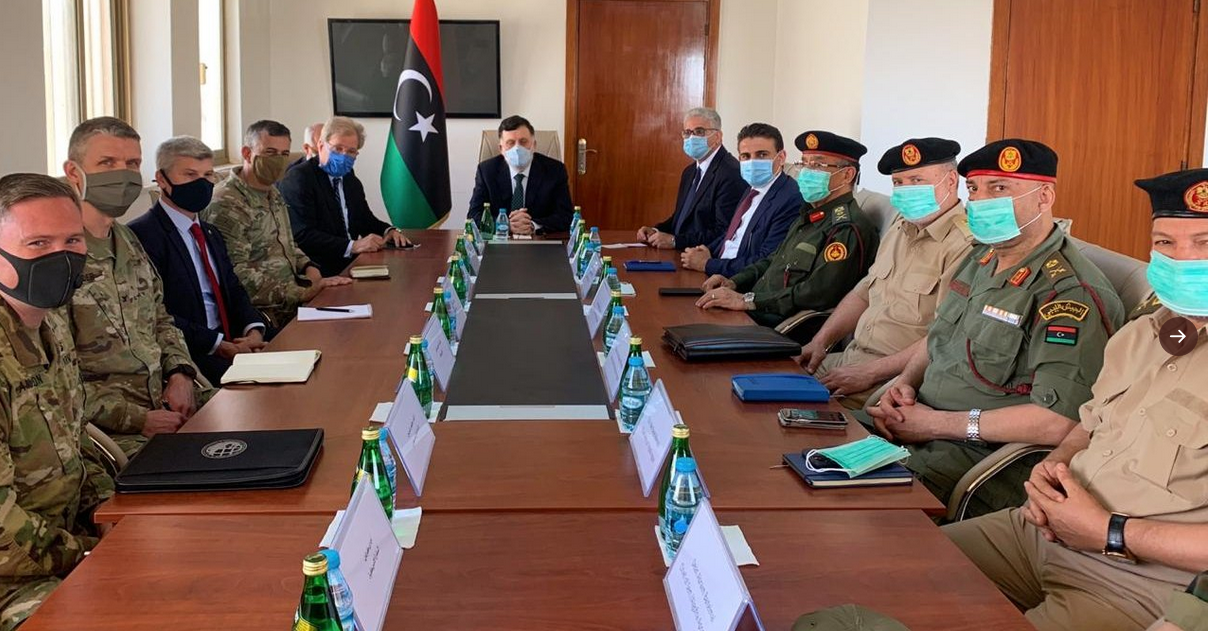Why isn’t Washington trying to resolve its allies’ positions on Libya?
Published on Monday 13 July 2020 Back to articles
Tensions over Libya between Turkey and both Egypt and France have dominated the headlines in recent weeks. All three of these countries are allies of the US and President Donald Trump enjoys particularly warm relations with Turkey’s President Recep Tayyip Erdoğan and Egypt’s President Abdelfattah el-Sisi. Meanwhile, Trump’s relations with France’s President Emmanuel Macron, which were initially strong, have subsequently deteriorated but France remains an important US ally in NATO and the European Union (EU). Despite its recent heightened level of engagement in Libya, why hasn’t Washington attempted to bridge the gaps between these key allies on Libya and thereby enhance the chances for peace?

The first answer lies in Washington’s preoccupation — at the expense of other issues — with Russia’s role in Libya as recent statements, speeches and diplomatic engagements by senior US officials have demonstrated. Washington’s other recent preoccupation has been the resumption of Libya’s oil and gas production. Washington’s proclivity to fixate on certain issues in Libya has a precedent: after the 2012 attack on the US Consulate in Benghazi — which resulted in the death of US ambassador J. Christopher Stevens and three other American officials — its attention was entirely focused on counter-terrorism. This led President Barack Obama’s Administration to miss important opportunities to influence other events in Libya. One might presume that, with France and Egypt’s are on the same side as Russia in Libya, would be a sufficient call to action for Washington but so far it has not.
The second answer is because the senior echelons of the Trump Administration are currently distracted by both COVID-19 pandemic and the looming November 2020 election, with current polls suggesting that it will be wone by former vice-president Joe Biden. The fear that Trump may lose the election, and that a Biden presidency would impose meaningful costs on countries such as the UAE, Turkey, and Egypt over their meddling in Libya may even encourage them to try and achieve their aims before November.
An all-out US push for peace in Libya is also too risky for Trump to undertake during a very challenging re-election campaign. Yet — in the absence of consistent high-level White House attention — US leverage over events in Libya is also greatly weakened. The current anti-Russian drive is led by the Department of Defence. The current National Security Council Middle East Senior Director, Major-General Miguel Correa, undoubtedly shares the Pentagon’s antipathy toward Russia. The US’ policy towards Libya has never reflected a comprehensive approach in the Trump Administration.
The third answer has to do with the fact that Washington’s leverage which, even if it is willing to deploy it, is objectively weakened by: the central role of Turkey and Russia in Libya; deep divisions in Europe over Libya policy; and the Trump Administration’s credibility gap in terms of diplomacy and multilateralism. The US has, for example, been unable or unwilling to rein in the UAE when it acts against Washington’s interests in Libya, Yemen, or the Gulf.
The net effect of Washington’s absence is, however, unmistakeable. It has put key US allies on a collision course in Libya and they feel entirely unconstrained. For countries such as Egypt this means that, while they may not have a clear interest in going to war in Libya, they could miscalculate Turkey’s provocations and US indifference. In turn these Turkish provocations are possibly ones that the US might curtail using its influence in Ankara if it had the will to do so.
This excerpt is taken from Libya Politics & Security, our weekly intelligence report on Libya. Click here to receive a free sample copy.



